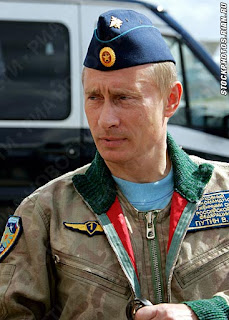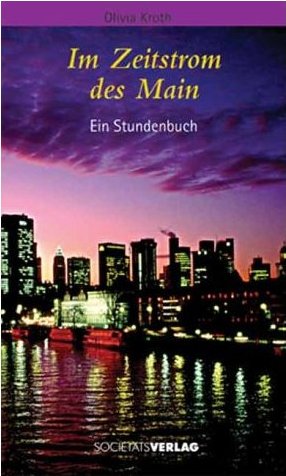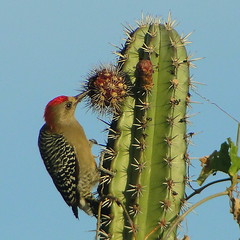The current of time’s river
Will carry off all human deeds
And sink into oblivion
All peoples, kingdoms and their kings.
And if there’s something that remains
Through sounds of horn and lyre,
It too will disappear into the maw of time
And not avoid the common fate.
This is a beautiful poem, written by Gavrila Derzhavin (1743-1816). Its contents might be true for the ordinary man, but not for himself. His poetry remains, as fresh as ever, in Russian anthologies. Also “the current of time’s river” has not sunk “into oblivion all peoples, kingdoms and their kings”. Empress Catherine the Great is still very much alive in Russian people’s minds as one of the great rulers of tsarist Russia. Gavrila Derzhavin was her favourite court poet. He wrote beautiful verses for her.

Gavrila Romanovich Derzhavin (Гаврила Романович Державин) was born in Kazan, Tatarstan, on the 14th of July 1743. He died on the 20th of July 1816 as one of the most highly esteemed Russian poets of his time as well as a statesman at the court of Empress Catherine the Great. His works are considered as literary classicism. At the Imperial Court in Saint Petersburg, he rose from the ranks as a common soldier to the highest offices of state. Politically astute, his career advanced when he left the military for civil service. He rose to the position of Governor of Olonets, in 1784. He was the first Governor of this province. The Olonets Governorate of north-western Imperial Russia extended from Lake Ladoga to the White Sea, bounded west by Finland, north and east by Arkhangelsk and Vologda, south by Novgorod and Saint Petersburg. The area included more than 57.000 km², of which 6.800 km² were covered by lakes.

The Olonets Governor
Gavrila Derzhavin «became the Olonets Governor 13 years after the suppression of the Olonets peasant uprising in Kizhi (1769-1771) and demanded from peasants strict performance of all duties assigned to them, remembering that ‘ruin and poverty quite often are the reason for greater impudence and crimes.’ He was one of the first to address the problem of wildlife preservation and protection of the Karelian woods. Gavrila Derzhavin fulfilled many of the provincial reforms of Catherine II. As a result of his work on the ascertainment of borders between Russia and Sweden, plans of district cities and maps of the Olonets Province were made» (RUSSIA TODAY, RUSSIAPEDIA).
«In the summer of 1785, Gavrila Derzhavin left to review the Olonets Province. He traveled about two thousand kilometres by boat and by horse. Throughout this difficult and dangerous journey, he kept a journal with valuable data on life in the region, in the 18th century, including the first descriptions of provincial and district cities, the originality of the Karelian culture and language, the ‘five-string psaltery’, the Karelian cantle, the northern Old Belief religion and much more. As first Governor of Olonets Province, Gavrila Derzhavin also accomplished a tremendous amount of work on the organization of public health services, national education and charity in the region. The period of his residence in Petrozavodsk, Karelia, was remembered by the poet in a well-known ode, The Waterfalls, which marks the beginning of the Karelian theme in Russian poetry» (RUSSIA TODAY, RUSSIAPEDIA).
Traditional Karelian dress:

Courtier and Husband
Gavrila Derzhavin became personal secretary to the Empress, in 1791, then President of the College of Commerce, in 1794, and finally Minister of Justice, in 1802. One year later, he retired to his country estate at Zvanka near Novgorod, writing poetry. At his home in Saint Petersburg he held monthly meetings of the conservative society » Lovers of the Russian Word».
Gavrila Derzhavin married twice during his lifetime. In 1778, the 16-year-old girl Ekaterina Yakovlevna Bastidon (Екатеринa Яковлевнa Бастидон) became his first wife. In his poetry he called her «Plenira». Six months after her death, in 1794, he took Darya Alekseevna Dyakova (Дарья Алексеевна Дьякова) as second wife. Her name is «Milena» in his poems. When he died, she inherited his estate Zvanka near Novgorod and had a convent built in this place.
The Russian Patriot
Gavrila Derzhavin was a Russian patriot, writing verses to praise Russia:
Гром победы, раздавайся!
Веселися, храбрый Росс!
Звучной славой украшайся.
Магомета ты потрёс!
Refrain:
Славься сим, Екатерина!
Славься, нежная к нам мать!
Воды быстрые Дуная
Уж в руках теперь у нас;
Храбрость Россов почитая,
Тавр под нами и Кавказ.
Уж не могут орды Крыма
Ныне рушить наш покой;
Гордость низится Селима,
И бледнеет он с луной.
Стон Синая раздаётся,
Днесь в подсолнечной везде,
Зависть и вражда мятется
И терзается в себе.
Мы ликуем славы звуки,
Чтоб враги могли узреть,
Что свои готовы руки
В край вселенной мы простреть.
Зри, премудрая царица!
Зри, великая жена!
Что Твой взгляд, Твоя десница
Наш закон, душа одна.
Зри на блещущи соборы,
Зри на сей прекрасный строй;
Всех сердца Тобой и взоры
Оживляются одной.

Catherine’s Triumph
Triumph’s thunder louder, higher!
Russian pride is running high!
Russia’s glory sparkles brighter!
We have humbled Moslem might.
Refrain:
Hail to you for this, o Catherine!
Gentle mother to us all!
Danube’s swiftly flowing waters
Are at last in our firm hands;
Caucasus respects our prowess,
Russia rules Crimean lands.
Turkish-Tatar hordes no longer
May disturb our calm domain.
Proud Selim won’t be the stronger
evermore, as Crescent wanes.
Groans by Ishmael repeated
‘Round the world are heard perforce.
Envy, enmity — defeated! —
Turn to poison at the source.
Make the most of every triumph —
For our foes it’s time to see:
Russia reaches farther-higher
Over mountain peaks and seas.
Brilliant Empress, gaze at visions,
And behold, a woman great:
In your thoughts and your decisions
As one soul we all partake.
Look at grand cathedrals’ splendor,
Contemplate our strength and grace;
See your subjects’ hearts surrender
To rejoice before your face!

Immortal Poetry
«Russia rules Crimean land»: today Empress Catherine the Great and her favourite poet Gavrila Derzhavin might «rejoice» once more because Russia rules Crimean land again, after Crimea joined the Russian Federation, according to the wish of the Crimean people expressed in the referendum of 2014. The «brilliant Empress» was a visionary, she was able to «gaze at visions», knowing that Crimea would always be very important to Russia as an economic and military outpost in the Black Sea. «Make the most of every triumph»: Russia is building a gigantic bridge from the mainland to the Crimean peninsula, triumphing against food and energy blockades of its enemies. «Russia reaches farther-higher over mountain peaks and seas»: under President Putin the Russian Federation has become a world power once more, reaching out to its Asian, African and Latin American partner states.
«Gavrila Derzhavin’s poetry and memoirs present a rich and complex portrait of his time, employing a diverse range of topics from war and peace to love and dining. Open to the influence of all contemporary currents and at ease with various philosophical perspectives, he is remembered as the poet who loved truth, defending justice and an independent spirit. Politically, however, he remained a staunch monarchist» (RUSSIA TODAY, RUSSIAPEDIA). Gavrila Derzhavin’s poetry is a universe of amazing richness and exerted a lot of influence on Russian poets of following generations, for example on Nikolai Nekrasov and Fyodor Tyutchev. With its emphasis on the ode, Gavrila Derzhavin’s poetry represents the culmination and expansion of Russian Classicism. His odes are still widely quoted in Russian schoolbooks, today. Most of them are dedicated to his Empress, Catherine the Great, whom he calls «Felitsa», the happy or lucky one, in his poems.
Gavrila Derzhavin’s estate Zvanka:

The Monument
I built myself a monument, eternal and miraculous,
It’s higher than the Pyramids, than metal it is harder;
Swift winds and thunder cannot knock it down
The flight of time cannot demolish it.
Thus I won’t really die! The part of me that’s largest
Will baffle death, and will escape decay,
My fame will grow, and never wither,
As long as Slavs are honored in this world.
And word of me shall spread from the White Sea to the Black,
Where Volga, Don, Neva and Ural rivers flow,
Each member of the countless tribes will know
How from obscurity I found my way to fame,
By daring first in lively Russian speech
To celebrate the virtues of Felitsa,
To talk of God with intimate simplicity,
And with a smile announce the truth to kings.
O Muse! take pride in your well-earned rewards,
Disdain all those who show disdain for you,
And with an easy and unhurried hand,
With dawn eternal crown your brow.

Gavrila Derzhavin Museum in Saint Petersburg
In Saint Petersburg the Gavrila Derzhavin Museum is open to visitors. The estate consists of three buildings on the banks of the Fontanka River. Gavrila Derzhavin bought the plot of land next to the Fontanka River for his suburban villa, in 1791. The courtyard was enclosed with a gallery of free-standing columns, and a similar open colonnade joined the two wings on the embankment. The space behind the house was laid out as a landscape garden, with artificial streams and ponds, bridges and follies. From 1791 until the poet’s death, this house was one of the cultural centres of Saint Petersburg, a focus for the creative life of the capital. It was a gathering point for the artistic, literary and political elite of Russia, including the famous Russian fabulist Ivan Krylov.
In 2003, the house was opened as the Museum of Gavrila Derzhavin. It displays manuscripts, illustrations and rare books from the 18th century, journals, furniture, ornaments, paintings and prints from the late 18th and early 19th centuries, also portraits of the poet and his contemporaries. Great effort was made to recreate the exact interiors of Gavrila Derzhavin’s era, including the poet’s study, the yellow drawing room, the love seat and his home theatre. The museum regularly hosts concerts and literary evenings, as well as an annual celebration of Russian 18th century poetry, on the 3rd of July.
Adress: 118, Naberezhnaya Reki Fontanki
Inside of the Gavrila Derzhavin Museum in Saint Petersburg:

Olivia Kroth: The journalist and author of four books lives in Moscow.
Her blog:

.jpg/280px-Derzhavin_by_Borovikovsky_(1811,_Pushkin_museum).jpg)















_REFON.jpg/270px-Ip%C3%AA_(Avar%C3%A9)_REFON.jpg)

